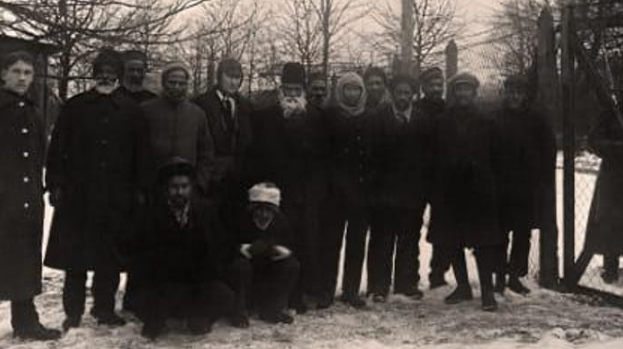
Ruhleben: Interned Civilian Prisoners of War
Classified as British subjects approximately 250 African Diaspora and Arab men in Germany at the outbreak of war were rounded up and interned at Ruhleben Camp, a dilapidated racecourse outside Berlin.
Although a relatively small number—among their ranks the largest contingent being merchant seamen from Sierra Leone and Yemen—the plight of civilian ‘people of colour’ has remained conspicuously absent from discourse on the Great War.
The presentation examines how the internees persevered in an almost 5,000-strong enclave—“Little Britain”—a virtual outpost of Empire. Ultimately, however, the men’s collective stories represent triumph over tragedy and the overall narrative represents the rescue of a marginalised group of men otherwise lost to history.
Unearthing Invisible Seafaring Histories of Empire
Asif Shakoor had no idea that his late paternal grandfather, Mahomed Gama, had worked on British Merchant ships during the First World War until a discovery made when visiting his grandmother’s home in Pakistan in 2011. The unearthing of a letter received by his grandmother in 1967 led to him carrying out forensic research across continents into the life of his grandfather and a search for missing war medals that he had been awarded. In the process he also discovered more about the life of another unknown wartime seafarer, Rohama Hassa, whose original papers were found with the letter.
Georgie Wemyss will interview Asif about his research journey and and remarkable findings.
Bios:
Asif Shakoor is an independent researcher in the history of South Asian seafarers in the First World War. His paternal grandfather Mahomed Gama served as a fireman enlisting in the Merchant Navy during the First World War. He is the author of an article on the returned War Medal of his grandfather. This was printed in Britain at War (January 2018). Since November 2011 he has been researching the history of his grandfather and other South Asian seafarers in the First World War. He set up the South Asian Contribution to Great Britain project.
Georgie Wemyss is Co-director of the Centre for Research on Migration, Refugees and Belonging at the University of East London and author of The Invisible Empire: White Discourse, Tolerance and Belonging (Routledge).
Presentations, audio visual display and photographic exhibition. Light refreshments.

